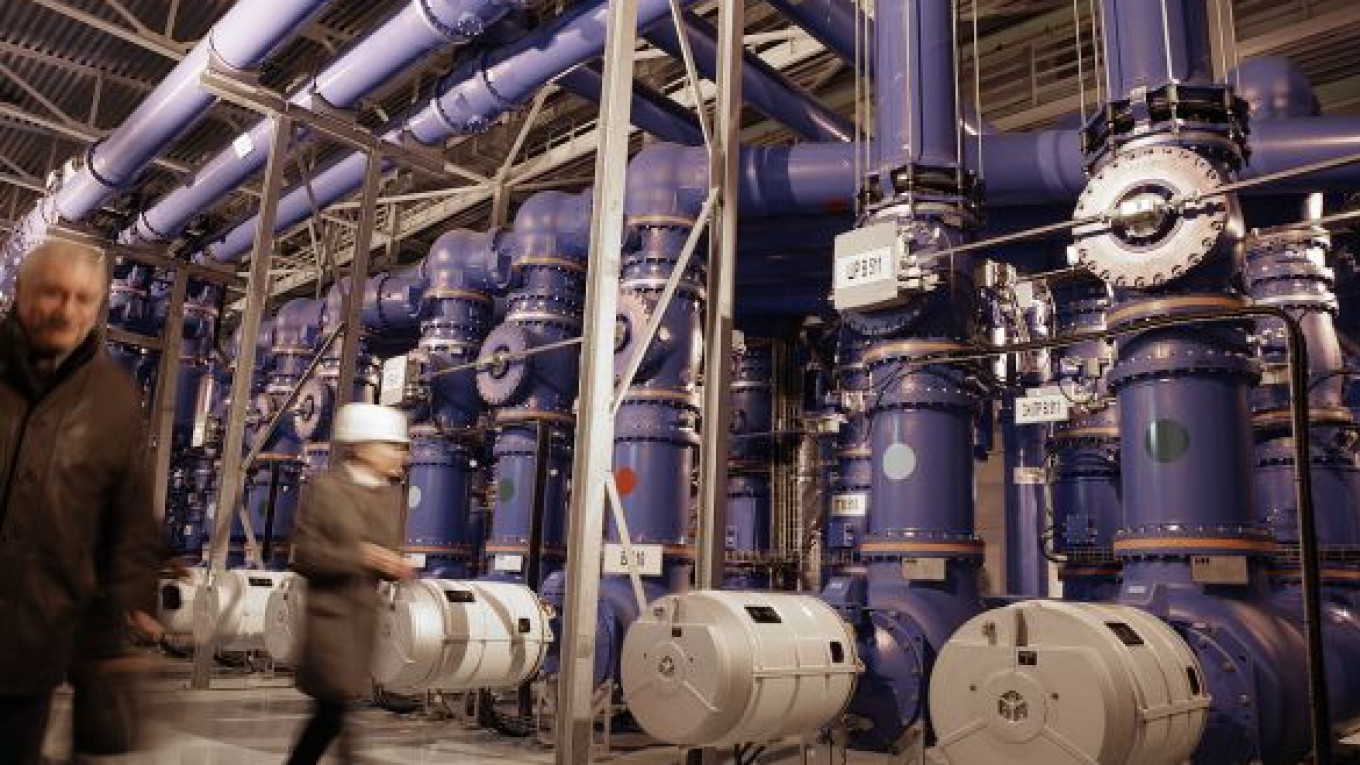Several major energy companies signed the first capacity supply agreements Thursday in a ceremony that started laying the groundwork for future investment into the Russian energy industry.
Siberian Coal Energy Company, known as SUEK, along with OKG-6, Fortum, Inter RAO and others signed the agreements with the industry's self-regulating groups such as the Market Council.
The agreements offer the firms involved a guaranteed rate of return on the energy they produce with their new plants for at least 10 years. Other strong economic incentives include preferential treatment at long-term capacity auctions.
In exchange, the signatory companies will be expected to invest in a range of fossil fuel-fired generating assets to fixed deadlines over the next five to seven years, amounting to a generating capacity of some 25 gigawatts.
Companies involved and the regulating authorities have trumpeted the agreements, which should all be signed by December, as a milestone in the government's strategy of harnessing private firms to expand the country's insufficient power generating capacity.
“I can say that these signings are quite an epoch-making event in the Russian legal system, the Russian energy industry and the Russian economy,” Dmitry Ponomaryov, the Market Council chief executive, said at the signing ceremony in reference to the entire signing campaign.
Analysts have welcomed the introduction of the new agreements for bringing clarity to both generators and investors.
“It draws a line under a substantial area of uncertainty for the power producing companies,” said Derek Weaving, a utilities analyst at Renaissance Capital. “Companies now know what they have to build and when.”
When the energy monopoly Unified Energy Systems was broken up and privatized in 2007, buyers took on commitments to expand generating capacity because the government was concerned by squeezes on energy supply at the height of the pre-crisis economic boom.
But the incentive for the expansion was based on the assumption of an ever-growing market — that failed when the economic crisis came along in 2008.
“As the 2008 crisis showed, you can never be sure what your returns will be. So there was a reluctance on the part of some companies to sink investment into new plants,” said Alexander Kornilov, chief utilities analyst at Alfa Bank.
Electricity demand plummeted 6 percent to 7 percent during the economic crisis that hit Russia at the end of 2008, Weaving said.
The agreements now being signed “set up a concrete schedule for the commissioning of newly built capacities and give the government assurance that all of this capacity is going to be commissioned on time,” Kornilov said.
Prime Minister Vladimir Putin originally signed off on the drafting of new agreements in February, but the deadline was repeatedly put back as generating companies negotiated over legal language and the deadlines for construction of new plants.
A Message from The Moscow Times:
Dear readers,
We are facing unprecedented challenges. Russia's Prosecutor General's Office has designated The Moscow Times as an "undesirable" organization, criminalizing our work and putting our staff at risk of prosecution. This follows our earlier unjust labeling as a "foreign agent."
These actions are direct attempts to silence independent journalism in Russia. The authorities claim our work "discredits the decisions of the Russian leadership." We see things differently: we strive to provide accurate, unbiased reporting on Russia.
We, the journalists of The Moscow Times, refuse to be silenced. But to continue our work, we need your help.
Your support, no matter how small, makes a world of difference. If you can, please support us monthly starting from just $2. It's quick to set up, and every contribution makes a significant impact.
By supporting The Moscow Times, you're defending open, independent journalism in the face of repression. Thank you for standing with us.
Remind me later.






